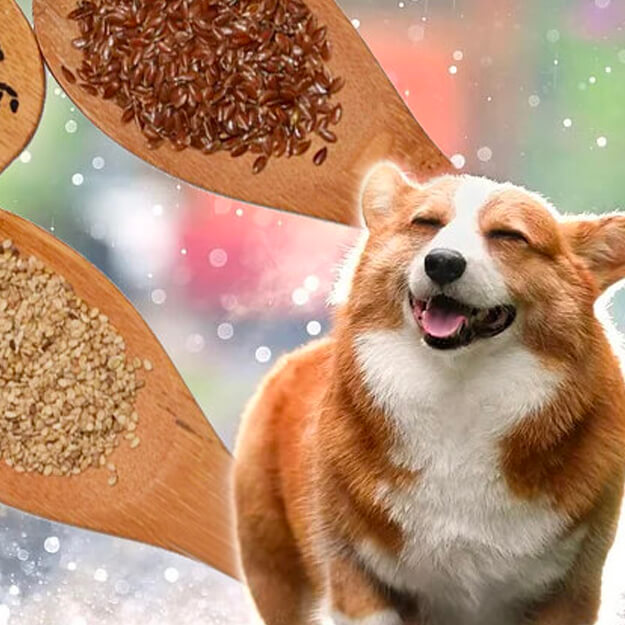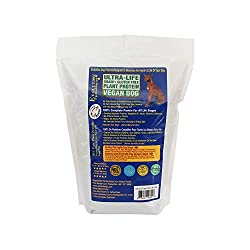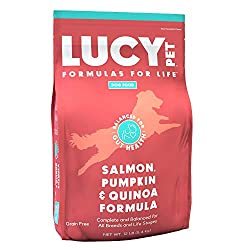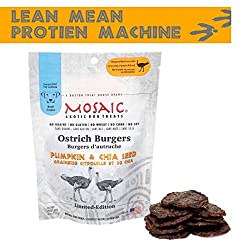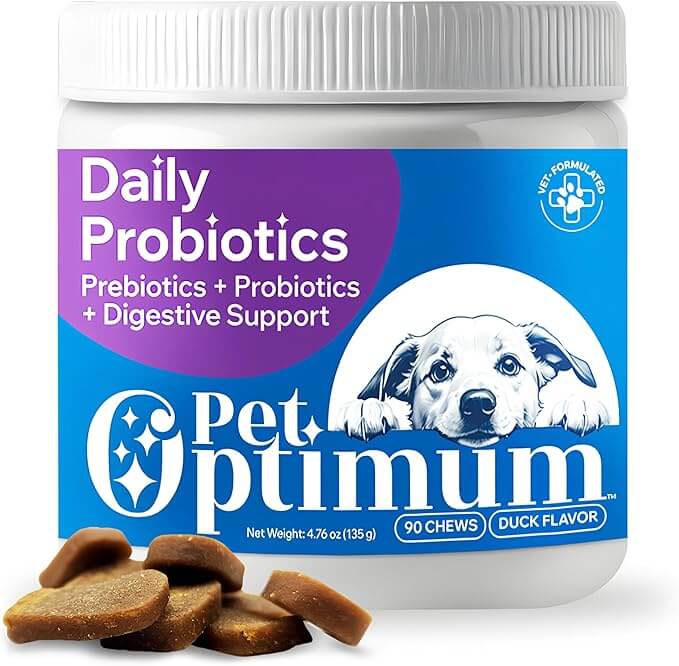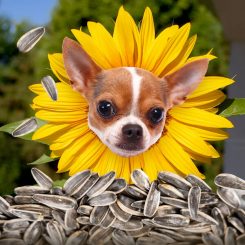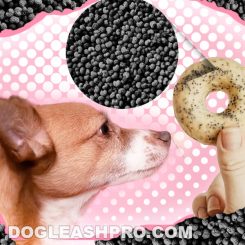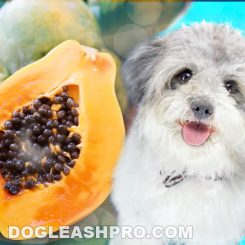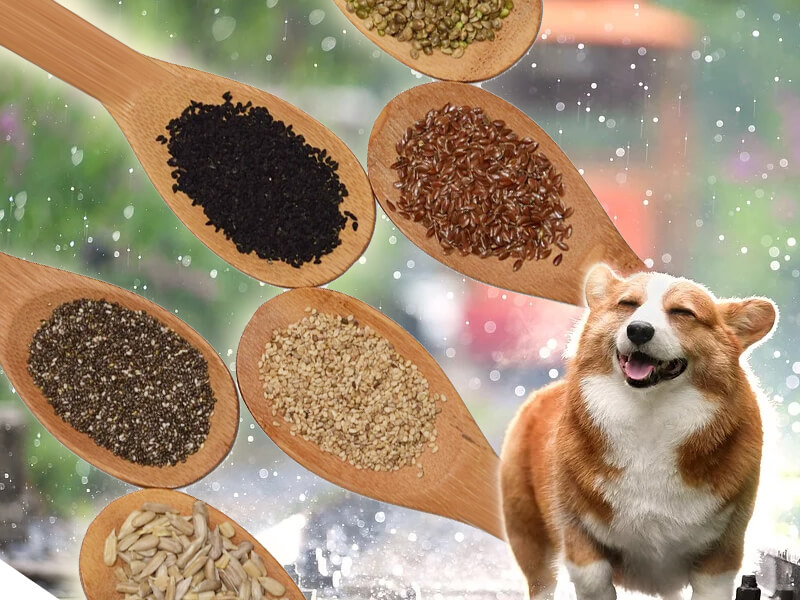
Let’s be honest, whenever your canine companions see you eating anything at all, they always want to try it. As responsible owners, we need to take care and make sure what we are feeding our dogs is safe for them.
Before feeding any seeds to your canine companion be sure to first give them a gentle rinse under some room temperature water. A quick rinse will wash off any chemicals that may have found their way onto the seeds during processing.
Be sure to always wash your dog’s food before giving it to them, pay attention to and wash things like green veggies such as Brussel Sprouts before giving them to your dog. Any food could potentially be tainted by pesticides and who knows what else.
We will go over several types of seeds and their impact on your dog’s health. While the information here is a good starting point please always monitor your dog for any adverse reactions to certain seeds.
Table of Contents
Can Dogs Eat Sunflower Seeds?
The short answer is yes, dogs can safely eat sunflower seeds. While dogs can have sunflower seeds there are a couple of things to look out for to make sure your dog does not have any digestive issues.
Prepping Seeds For Your Dog
Always remove any shells before feeding any seeds or nuts to your dog. This can be time-consuming but your furry pals will appreciate it. Seed can contain pesticides and other nasty chemicals that you don’t want your dog eating. A good rule of thumb here is to keep it organic and free from chemical additives.
Sodium Contents
One thing to keep an eye out for in store-bought organic sunflower seeds is the amount of sodium added. Manufacturers tend to put lots of salt in seeds they are selling for human consumption which can be harmful to your dog.
Always go for seeds that are labeled as unsalted or with no added salt. It would be wise to look for other odd ingredients and buy organic when possible. Avoid processed foods at all costs.
As always be careful not to overfeed your dogs, they do not need the same amount of calories as us. Keep this in mind and lean on the side of moderation when feeding your K9 human foods.
Can Dogs Eat Pumpkin Seeds?
Yes, your canine friends can definitely eat Pumpkin seeds. To fully explain why Pumpkin seeds are great for dogs, let’s take a look at the nutritional profile of this chewy seeds.
Pumpkin seeds nutritional facts (1 ounce or 28 grams)
Here is the nutrition facts of 1 ounce or 28 grams of peeled pumpkin seeds:
| Name, Unit | Amount |
| Calories, cal | 126 |
| Carbohydrates, g | 5 |
| Fiber, g | 1.7 |
| Protein, g | 7 |
| Fat, g | 13 |
| Copper | 19% of the RDI |
| Iron | 23% of the RDI |
| Magnesium | 37% of the RDI |
| Manganese | 42% of the RDI |
| Phosphorus | 33% of the RDI |
| Vitamin K | 18% of the RDI |
| Zinc | 14% of the RDI |
As you can see from this nutritional profile, Pumpkin seeds are a superfood that is high in fiber. This means that when our canine friends eat a few Pumpkin seeds, it can help to improve their digestive system and allow our furry pals to go to the bathroom easier.
If you have overweight dogs, eating a few Pumpkin seeds can also help with weight loss.
Other than being high in fiber, Pumpkin seeds also have a ton of other health benefits too. Since these green, flat and oval seeds are packed full of magnesium, eating a few of them will help to reduce the risk of heart disease, promote healthy blood sugar and pressure level, and maintain strong bones in dogs.
You can also see from the nutritional profile that there is 13 grams of fat in Pumpkin seeds. Of this 13 grams of fat, 6 grams are omega-6s fat. Omega-6 is a fatty acid is great for canines because it helps with cell functions and cell membrane structure in dogs.
Our four-legged friends need omega-6 to have a healthy coat and skin, improve immunity, and promote growth. If you are breeding dogs, eating Pumpkin seeds that contain omega-6 fatty acids also helps with normal reproduction.
Pumpkin seeds also contain antioxidants which protects dogs from free radicals and help to maintain a healthy immune system.
Additionally, naturally occurring chemicals within Pumpkin seeds help keep your pups free of parasites. Pumpkin seeds were fed to dogs during the colonial period because they contain cucurbitacin, an amino acid that helps prevent worms.
Keep an eye on sodium levels and avoid processed brands. If everything checks out then you have a perfect healthy treat for your dog. Just like with sunflower seeds, make sure to thoroughly wash and remove the shells from the Pumpkin seeds before you feed them to your dog.
Ideally, it’s best if you crush the Pumpkin seeds to smaller pieces to avoid choking in dogs.
To sum it up, here is a list of health benefits of Pumpkin seeds for our furry friends:
- Promote a healthy heart: Pumpkin seeds help to prevent heart disease.
- Cancer prevention: Pumpkin seeds help to prevent different types of cancer in dogs.
- Lower blood sugar level: The magnesium in Pumpkin seeds helps to lower a dog’s blood sugar level.
- Healthy bladder: When dogs eat a few Pumpkin seeds, they will have a healthy bladder.
- Reduce inflammation: If your canine friends have inflammation, try a few Pumpkin seeds.
- Improve sleep: Your pups will sleep better after eating a few Pumpkin seeds.
With this said, although Pumpkin seeds are great for dogs, make sure you’re giving your pooch a moderate amount. Moderation is key.
Can Dogs Eat Chia Seeds?
This South American seed packs a powerful nutritional punch for your four-legged pals. Among its many health benefits, it will energize your dog and make them feel their best. Loaded with fiber and Omega-3 fatty acids Chia seeds are a great addition to your dog’s diet in moderation.
Chia seeds are an excellent source of protein and B vitamins which help to enhance their antioxidant properties. The best part about Chia seeds is that they are mostly flavorless and scentless, so they can easily be added to your dog’s food.
The seeds absorb water and are great when mixed with wet dog food. Like with everything else on this list feed Chia to your dog in moderation. On average for every 5 pounds of body weight, it is safe to feed up to ⅛ teaspoon per day to your dog.
Can Dogs Eat Flax seeds?
The short answer is yes you can feed your dog flax seeds. Like all human foods, it’s important to moderate the amount you feed your dog. Flaxseed plants grow in the Northern United States and in Canada. Known for their nutty flavor flax seeds are very popular among dogs.
A natural detoxifier they are a great source of protein for your dog and can help detoxify their systems. The fiber found in flax used to help your dog go to the bathroom by acting as a minor laxative.
Flax seeds are high in lignans which help fight inflammation throughout the body. Inflammation is the cause of many chronic illnesses in dogs, flax seeds can be a powerful tool to help fight age-related disease.
Flaxseed is also a great source of omega-3 fatty acids which can help keep your dog’s skin and fur healthy. Like with all the other seeds on this list it’s important to practice moderation when feeding them to your dog. Consider using a small amount of flaxseed as an additive to your dog’s daily meal to mix in with their food.
Can Dogs Eat Pomegranate Seeds?
While pomegranate seeds are not dangerous for your canine companion in most cases it is not advisable to feed them to your dog. The average recommendation here is to give your dog a small number of pomegranate seeds and if they don’t show signs of an adverse reaction they are probably fine.
In the worst-case scenario, your dog may experience some stomach issues and diarrhea.
To help support your dog’s digestive system and prevent potential discomfort, incorporating a probiotic supplement like PetOptimum Probiotics for Dogs can be beneficial in maintaining gut balance.
As always, it’s best to keep your dog’s pomegranate seed consumption to a minimum, and if you must feed them pomegranate seeds, do so sparingly and infrequently.
Can Dog Eat Sesame Seeds?
Who doesn’t love sesame seeds! Especially since they come on top of our favorite foods. Your dog has no doubt salivated over your burger and its accompanying sesame seed bun. The good news is you can comfortably share some of that beefy goodness with your furry pal.
Sesame seeds are safe for your dog to eat. Like with all human foods they should be given to your dog in moderation. Some dogs can be sensitive to certain seeds which could result in upset stomach or diarrhea. Otherwise, seeds are a superfood and a nutrient powerhouse.
If balanced properly they can be a great addition to your dog’s diet. Conclusion In conclusion, it pays to practice both moderation and caution when feeding your dog any food intended for humans.
Keep an eye out for additives like sodium and other chemicals. Try to buy organic foods and don’t feed your pets anything you wouldn’t eat yourself.
Conclusion
It pays to practice both moderation and caution when feeding your dog any food intended for humans. Keep an eye out for additives like sodium and other chemicals. Try to buy organic foods and don’t feed your pets anything you wouldn’t eat yourself.
DISCLAIMER: THIS WEBSITE DOES NOT PROVIDE MEDICAL ADVICE
The information, including but not limited to, text, graphics, images and other material contained on this website are for informational purposes only. No material on this site is intended to be a substitute for professional veterinary advice, diagnosis, or treatment. Always seek the advice of your veterinarian or other qualified health care provider with any questions you may have regarding dietary needs.

With over five years of specialized experience as an animal writer, my expertise lies in dog nutrition, health, behavior, grooming, and training. I am dedicated to delivering helpful and informative content that caters to the well-being of our furry friends. My primary goal is to empower pet owners with knowledge and ensure our canine companions thrive in health and happiness. In my free time, I love volunteering at local dog rescue centers.
